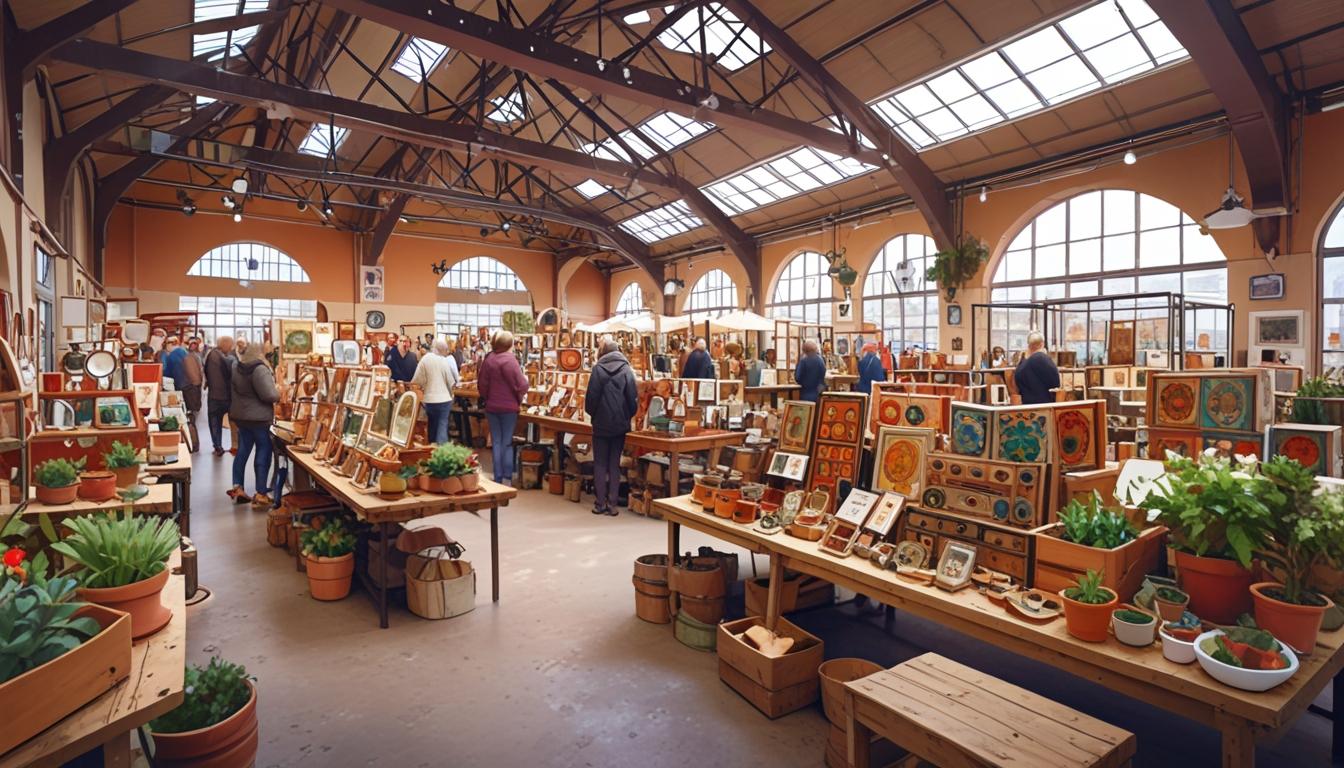As German city centers face rising vacancies, towns like St. Ingbert are transforming empty storefronts into vibrant flea markets, fostering community spirit and supporting local artisans.
Many city centers in Germany are experiencing a surge in vacancies, leading to innovative approaches to revitalize these spaces. One such initiative is taking place in St. Ingbert, Saarland, where a former H&M store has been transformed into a bustling indoor flea market, attracting visitors and fostering community engagement.
The flea market has become a vibrant meeting point in downtown St. Ingbert, operating on Fridays and Saturdays. As reported by Pauline Deichelmann for “tagesschau,” the indoor market has brought renewed life to the previously empty storefront, which had been vacant for several months. The concept was introduced by city employee Heike Hartinger, who emphasized, “It’s not just about passing on used goods but also about attracting people to the city center.” The flea market aligns with St. Ingbert’s reputation as the “Biosphere City,” where sustainability is a key focus, and second-hand initiatives are well received.
Each week, the flea market adopts a different theme, allowing for a diverse array of goods, including household items, vinyl records, and clothing. Hartinger noted the element of surprise for visitors, stating, “This way, visitors can always expect surprises.” Beyond used items, local artisans also showcase their handmade products, broadening the market’s appeal. One such vendor is Yasemin Selvic, who, alongside her mother, offers hand-crocheted stuffed animals. Originally slated as a pilot project until February, the high demand led to an extension of the market’s operation until the end of April.
The challenges faced by St. Ingbert are reflective of a broader trend. The Federal Association of Retail has reported a significant decline in the number of retail establishments since 2015, an issue exacerbated by the COVID-19 pandemic, which resulted in approximately 35,000 shop closures nationwide. Notable sectors, particularly shoe retail, have seen considerable losses, with many mid-sized cities suffering the most as larger chains withdraw.
Efforts to combat these vacancies extend beyond St. Ingbert. In Saarbrücken, a store called “Dein Schnickschnack” has created an alternative solution, allowing individuals to rent shelf space to sell their goods. Managing director Sylvia Klauss shared that the clientele is diverse, saying, “Really everyone shops here. From students wanting to shop sustainably to the upper class.” The store also accommodates social assistance recipients, offering a 20 percent discount through a partnership with the Saarbrücken city government.
At “Schnickschnack,” various items are available, from electrical appliances to clothing, with long-term vendors securing shelf space for years. The store functions not only as a retail space but also as a community gathering spot, featuring a weekly knitting group and regular coffee and cake afternoons.
While questions remain about the long-term sustainability of these innovative concepts, early indicators suggest they can temporarily reinvigorate city centers. By creatively utilizing vacant spaces and fostering community interaction, these initiatives present potential pathways for revitalizing urban economies in the face of ongoing retail challenges.
Source: Noah Wire Services





One Comment